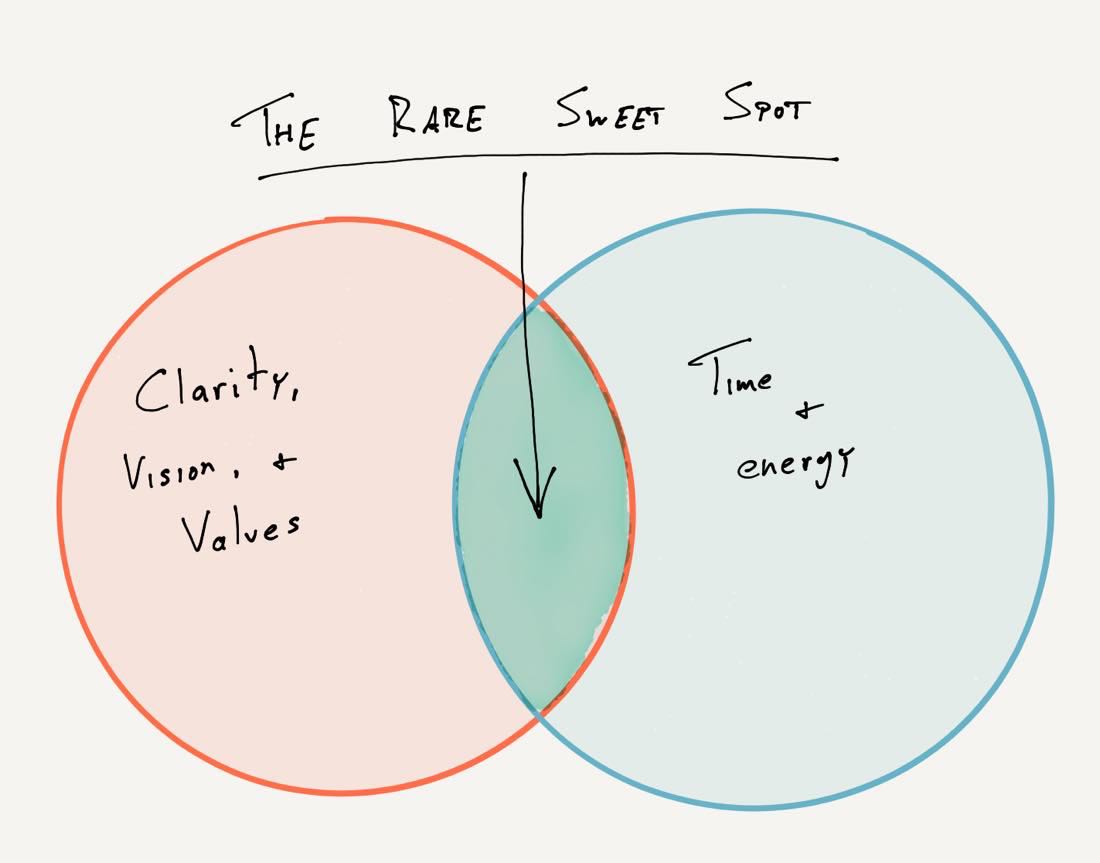The Wrong Way to Manage Your Time
If there is one thing I have learned about focus and time management over the years, it is that how we spend our time and energy is an ever moving target.
Why? Because seasons of life change. Priorities and goals change. Our daily routines change. And thus, so too must we change how we spend our time.
My all-time favorite Ben Franklin quotes is this:
“Dost thou love life? Then do not squander time, for that’s the stuff life’s made of.”
Let’s talk about how to avoid squandering your time (and, thus, your life).
The Wrong Way to Manage Your Time
- Not setting aside time to rest, think, and breathe.
- Not following through with the commitments and promises you make to yourself.
- Create a schedule but then ignore it.
- Create a schedule but then get frustrated and discouraged when you don’t keep it perfectly, 100%.
- Winging it every singled day and doing whatever feels best in the moment (which often results in a lot of time spent perusing email, Twitter, Facebook, etc.).
- Being reactive versus proactive.
- Spending your day responding to other people’s urgent issues.
- Doing mostly shallow, busy work because you’re lacking clarity or motivation to do deeper work.
- Not using routines and systems to make things easier on yourself.
The Right Type of Productivity Advice
The Focus Course has an approach to time management that is very different than you may think.
It’s not about filling your day to the rafters with super-important work work work. It’s not about crafting the perfect morning routine.
Rather, it’s about identifying the things which matter most to you and then protecting those things with healthy boundaries.
Get yourself into that rare sweet spot where your calendar overlaps with your values, and then stay there.

It sounds easy and obvious. But you’d be surprised how many people fill their day doing things they don’t want to do.
On my calendar you’ll find things like Netflix. And family day. And date night. And nothing at all. Yep. Those are all things on my weekly calendar. They are each just as important as my morning writing time and other business-y stuff I do.
Moreover, you’d be surprised how lenient we are when it comes to “keeping a schedule”.
I firmly believe that your schedule should not be set in cement. If you can keep 75- 80% of your weekly schedule, then that is winning.
A schedule is meant to be a framework — a plan — for how you want to spend your time. Your schedule is not your boss, it’s the other way around. (But unfortunately that’s now how most people see it.)
Your schedule help you stay on track with how you want to spend your time. It’s there to ensure you have capacity you need to spend time on your work, your life, your relationships, your health, and yourself.
From our sister site, The Focus Course, one of our alumni, Michael, shared this after going through the section on time management:
I am glad that I did this time budget. I wanted to do it for many years. But it was too overwhelming to even start it. This course helped me do that. And I have the flexibility to try and complete 75-80% and still get an A+! I like the flexibility. It helps get me out of the “all or nothing” and “complete success or failure” thinking.
Consider how much time you will regain when you have systems in place to help you focus on doing what matters.
How liberating will it be when you have more clarity about your life’s vision, values, and goals?
How long have you been trying to gain traction on your projects? How many hours of your day are you spending on things that truly matter?
A lack of control and no clear focus may already be costing you…
How you spend your time is, quite literally, how you spend your life.
Over on our sister site, The Focus Course, we have a free class on Time Management. It’s comprised of six daily lessons, delivered straight to your inbox.
You can check it out here.
